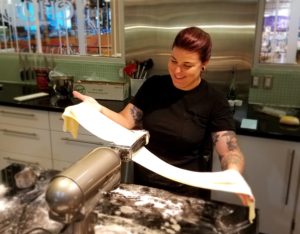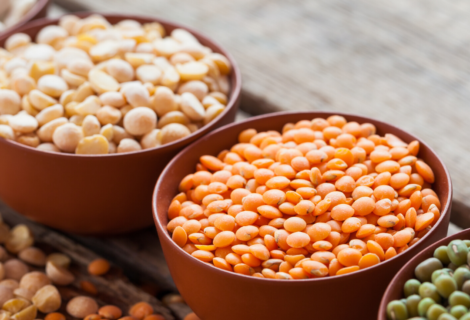Root For the Little Guys
I would first like to express my gratitude for your visit to my website. It has been my life long dream to own a cafe. While I wait for the opportunity to be able to open my doors and welcome my guests, I have set up this website to be a tool to share recipes, teach history and culture of food and educate the important role that the small time restaurants have in the heart of our communities.
Roots
Some Archeologists say that the Agricultural era was the down fall of man, humans had a pattern of foraging and roaming, and stayed together in small bands and tribes. With the understanding of agriculture, humans started growing their own foods and staying sedentary, thus allowing us to grow into bigger communities, (villages, towns, cities). Food was still traded with barter until the existence of the industrial era which turned food (in more advanced nations) into a commodity.

What’s happening to our food?
On May 7, 2020 NPR interviewed Top Chef’s Tom Colichio, celebrity chef, restaurateur, and food activist. He explains: “Certain producers and certain distributors are set up to do certain things. So if you have a milk distributor that is set up to purchase milk from a dairy farm, and they are producing milk for, say, institutions — meaning college campuses and hotels — maybe they produce milk in a 5-gallon container that has a plastic bladder in it and it’s set up to put in a dispenser. Those are all closed when schools closed and college campuses closed and hotels all closed down. Now, you have this distributor set up to do that. They can’t turn on a dime and all of a sudden start putting milk into gallon and half-gallon containers.”
He explains that, that part of the industry is set up with a completely different production line, so those farmer’s have no other option than to dump their food. He goes on to say “It’s not even a matter of taking it and shipping it to a different producer, because those other producers, they’re at capacity.”
He says the same thing is happening with the egg industry. “We’re hearing stories about eggs that are just being cracked and thrown out. Again, there is a market and production in place that a lot of institutional feedings use..”, the production lines are different because the consumer’s need is specific to that industry’s need.
Colicchio does offer some solutions though. The restaurant industry is the door to those supply chains, we can get that food in bulk and break it down and pass it through to alleviate the strain on grocery stores. He explains that it doesn’t necessarily mean we would stick to just creating our normal menu items, but by breaking down a case of chicken, for instance, and portioning out the bulk foods for public distribution all while being able to help pay their employees, keep farmers in production and continue the cash flow through the economy, and most importantly, making sure people are getting fed.
How Can We Help?
Last week I wrote briefly about what is happening to our supply chains, and why so many farmers are having to waste food, and a possible solution for how the Government and Restaurant industry can work together to utilize those supply chains, keep money flowing in the economy, and most importantly, getting people food.
Everyone shares the hashtag “shop local” and they believe they are doing a good thing by spreading the word, but are they doing this in practice? Do they know their local farmers and ranchers? Do they shop at local grocery stores, rather than the big chains? Yes, the big chains still feed into our local economy, but on a significantly smaller scale.
A Word, from the Little Guys

Having been able to tour the farms at Heber Valley Artisan Cheeses, located in Heber Valley, UT, I reached out to them to help articulate their Love for what they do! Tamra Annett, Director of Marketing, reiterated their farmstead model “We love our farmstead model: an opportunity to care for our product from calf to cheese curd. We get to “touch” or influence each part of the production process. This innovation has helped us weather COVID-19 slightly better than most commodity dairies.”
She goes on to say “Our mission statement is to help people experience the difference of the farmer’s touch – meaning we LOVE sharing our story and our farm with fans and visitors all over the world. When social distancing is not required, we host people daily on our farm for a behind-the-scenes dairy farm tour – which they learn about the cow to cheese curd process.” Can I just pause to say having family in WI, there is NOTHING better than fresh cheese curds! And happily, you can find Herber Valley Artisan cheeses at Harmon’s, Whole Foods, and Smith’s. I look forward to sharing a few recipes with their products!

Located in Ogden, UT, “Urban Prairie Agriculture is more than produce. We believe in whole body wellness and eating is a key part of that plan. We eat to live. This means that the principles of living can be enhanced by growing your own food, but encompass more.
Food has a connection to our physical health, but it also connects to our mental well-being, our body’s ability to cope with external stressors, sleep and more. When eating well, and growing your own food, being connected to the source of life is a natural outcome. We are happy to provide fresh produce grown without pesticides or other harmful chemicals. We are equally pleased to teach you to grow your own food, and provide the support, tools and resources to succeed.”

I spoke Briefly with a rep from Henson Heritage, but on from their website I found the key things I look for “ Our goal is to provide clean, sustainable, and affordable farm products. We work hard daily to succeed and we work hard to not only uphold those standards, but teach people (our kids especially) why these standards are important. We love our animals and we treat them accordingly. We’re not a huge processing plant and we like it that way. Every animal on our farm is loved and gets attention.” They also mention their local butchers (another fantastic sign of freshness and care) C & S meats in West Haven Ut is a small 3 generation shop and Tooele Valley Meat is a small 4th generation family butcher shop located in Grantsville Ut.
My personal theory on raising meat on small farms like this is that when they receive the quality of life they deserve, they have a flavor that is incomparable. Coming from a family of dairy farmers myself, I truly saw the passion and know that there is something quite unique about the work any farmer does, they care for their animals in a way that is just not seen in mass production farms. It’s not just their livelihood, but their respect for the animals, the process, and the community that makes their food just taste better!




Recent Comments